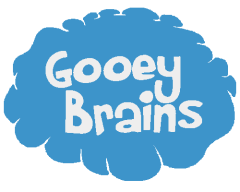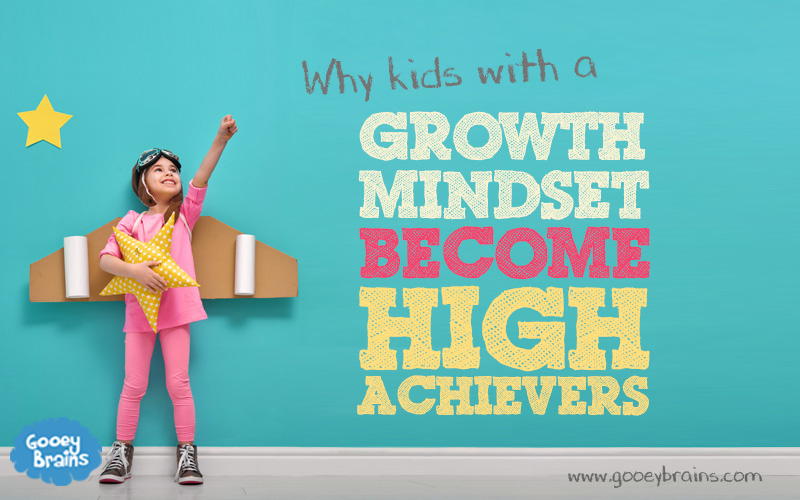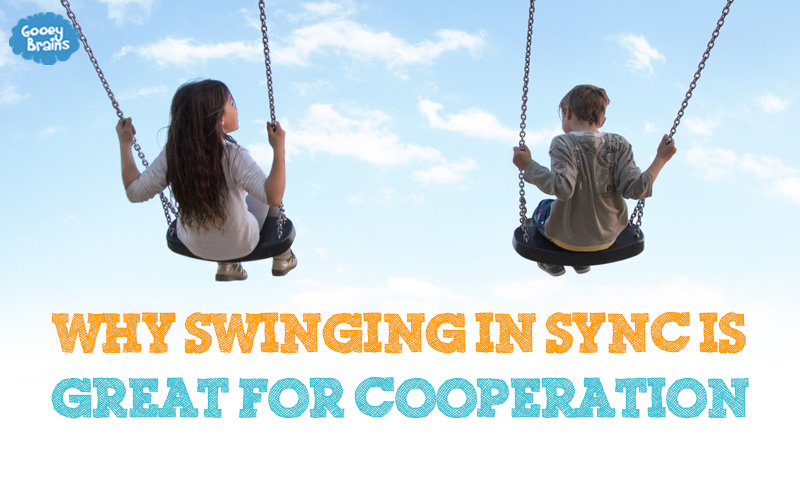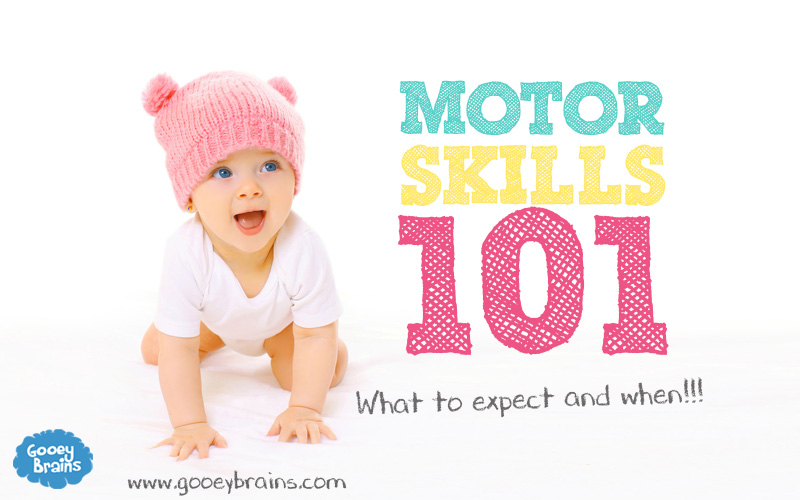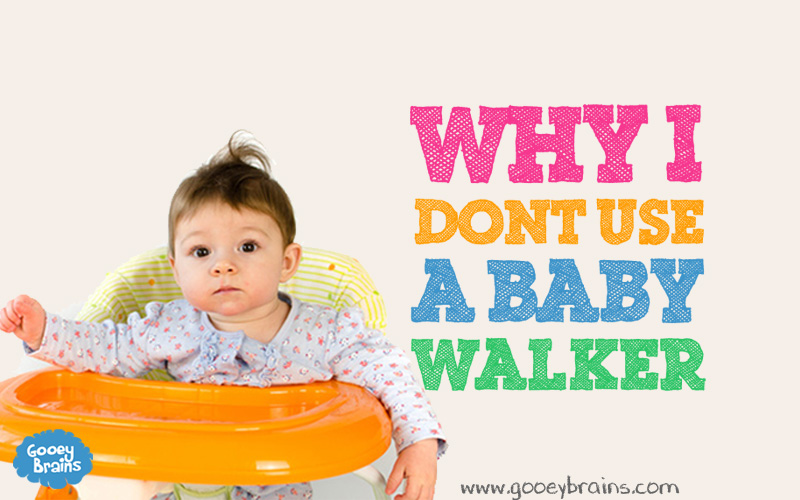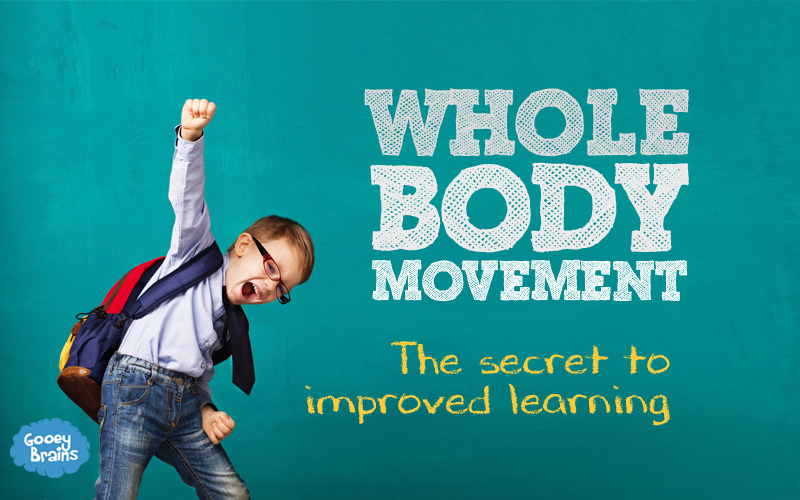A growth mindset is a secret weapon that you can use to help kids to achieve more, get smarter and perform better in school! In fact, lots of scientific research has demonstrated that children who have a growth mindset become high achievers! As a parent or teacher you can make a huge impact on your child’s development by learning about a growth mindset is, and then implementing some simple changes in the home and classroom. Growth mindset is a term that was coined by psychologist and researcher Dr. Carol Dweck. She wanted to understand why some people succeed in school and life while other people who are equally talented do not. Her research uncovered that success and achievement are linked to your mindset. Dr Dweck believes that…

“If parents want to give their children a gift, the best thing they can do is to teach their children to love challenges, be intrigued by mistakes, enjoy effort, and keep on learning. That way, their children don’t have to be slaves of praise. They will have a lifelong way to build and repair their own confidence.”
Her research shows that teaching children to have a growth mindset by encouraging effort instead of talent or intelligence boosted their achievement. She explains that a growth mindset is a way of thinking about goals, achievement and learning! Dr. Dweck noticed that some kids bounced back easily after a setback or failure, whereas other kids seemed heavily impacted by it and would give up easily. She believed that the children who bounced back had a growth mindset, and those who did not had a fixed mindset. The mindset explains what a child believes about learning and achieving goals.
Click here for more Growth mindset quotes from Dr Carol Dweck
Fixed mindset vs Growth mindset
What is a growth mindset?
A child with a growth mindset believes that they can change their brain! It is important that our kids know that intelligence or talent is not set in stone. They can get smarter and learn more talents by training their brain in that area. This gives children the motivation and belief that putting effort into learning is worthwhile. Kids who have a growth mindset create goals about the learning process. They come to understand that if they stumble, or even fail, this is okay because getting it wrong is sometimes an important part of the learning process. In fact making a mistake usually gets us one step closer to mastering the task. Children who have a growth mindset are not afraid to take on challenges or try new things. They love to explore and learn. Every new challenge is a learning opportunity and they are not too concerned if they have setbacks. Kids with a growth mindset are also more open to feedback, even negative feedback! They take joy and inspiration from others successes (instead of feeling threatened), hoping to learn new skills and ideas from them. Because a child with a growth mindset takes on more challenges and is motivated by learning, they begin to learn more, get smarter, and achieve higher.
What is a fixed mindset?
A child with a fixed mindset believes that intelligence can not be changed. They don’t yet understand that they can train their brain to become smarter at something, or learn new talents. As a result, these kids tend to focus on performance goals (the outcome) rather than learning goals (the process). They want to be ‘the smartest’ or ‘the best’ at things. They become invested in looking smart or being good at things all the time. These kids often don’t like challenges, and they avoid being challenged because failing or stumbling makes them look bad or incompetent. Children with a fixed mindset may give up easily instead of persisting when a task gets hard. They would rather not attempt the task than to be seen struggling with it. Some children believe that they are simply ‘not smart enough or not good enough’ to bother trying something difficult. Children with a fixed mindset might feel threatened by other peoples successes, thinking that this person is better than them. They may be defensive when presented with negative feedback and feel that the feedback is a judgment rather than a learning opportunity. Children with a fixed mindset might not reach their achievement potential.
How to develop a growth mindset?
1. Teach kids about their gooey plastic brain
The good news is that a mindset is changeable and we can help our children to develop a growth mindset. How? By teaching them about their brain! We need to help our kids to understand that their brain is changeable. They can shape their brain and grow their brain. You can teach them that their brain is like a muscle, the more that they use it – the bigger it grows! Kids who believe that they have some power over training their brain become motivated to try new things and enjoy learning. There is lots of great scientific research that shows that this works. Children have been shown to get better exam results, to achieve more goals, and get smarter in school after learning about being able to train their brain.
2. Avoid praise about outcomes
As a parent you can also help your child to develop a growth mindet by changing the way that you encourage and praise your child. If you tell your child things like ‘You’re smart’ or “Wow, you are so clever’ you are actually encouraging a fixed mindset. Although the praise seems to be positive, it carries the message that intelligence is not changeable. The child thinks ‘Okay, people think that I am smart, I better do everything that I can to maintain that idea!’. The child may then shy away from challenges, because they feel that if they find something difficult it means that they are not actually smart.
3. Praise the learning process more often
Instead of praising the outcome, we can praise the process of learning, or the effort put in. For example, ‘you worked hard and I am proud of your effort’ will help to encourage a growth mindset. This is because you are praising the process of learning, rather than the end result. You might also say things like ‘accepting that challenge was brave and look how much you have learned’, or ‘You did a great job training your maths brain today’. This type of praise helps children to enjoy the process of learning new things, and to keep trying when things are difficult or challenging.
4. Encourage children to switch strategies and ask for help
So we know that we need to praise the process (effort) rather than the outcome. But what if the child’s effort is using the same strategy over and over again? What if you know that their strategy will never help them to master the task or learn the information? This is when it is important to teach kids that it is okay to ask for help! As a parent or teacher, you can let a child know when it is a good time to ask for help. You can also help them to develop new strategies to try when they get stuck. So, you need to ensure that you praise the efforts that lead to learning progress or outcomes (not efforts that repeatedly lead to the same mistake). Dr Dweck tells us that “It’s not just effort, but strategy … so support the student in finding another strategy.” What Dr. Dweck means by this is try not to praise effort that is not working or helping the child. You don’t want to encourage them to simply try the same thing over and over knowing that it will never help them to achieve the skill. Instead you want to coach them to try new and different strategies each time. Trying something new will help them to continue learning and get closer and closer to their goal. It’s important that children know that learning is about both effort, and also knowing when to seek help!
How to be a growth mindset coach at home
- Teach your children that challenges are a fun opportunity to learn something new.
- Help your kids to understand that sometimes we need to fail to learn a new skill. Failures can be big steps forward!
- If your child is putting in lots of learning effort but not moving closer to mastering the skill, then prompt them to ask for help or try a new strategy.
- Celebrate the success of others with your children and point out what they can learn and gain from seeing the other person succeed.
- Provide both positive and negative feedback and explain how to use the feedback to help learning processes.
- Praise the learning process instead of just the outcome.
- Foster grit, determination and persistence as good qualities that help learning.
- Provide opportunities for exploration and challenge.
How to Use Praise to Maintain a Growth Mindset
Here are some ideas of phrases that you could use to encourage a growth mindset. These will help you to get started, but pretty soon you will be coming up with plenty of your own.
- You tried really hard on that
- Well done, you never gave up, even when it got hard
- What a great attitude you had during that task
- I love how creative your problem solving was
- It was brave of you to accept that challenge and look how much you have learned
- When you tried different strategies you learned a faster way to do that task
- I’m proud of you for asking for help when you got stuck
- You are on the right track, keep at it
- This may take some time and effort, but I will be with you to help
- You were close that time, let’s try a new strategy
- Look how much you have improved after training your brain in maths
- Your friend is really good at that, I bet we can learn lots from her
- You studied hard for your science test and I can see a great improvement there. I noticed that you read books out loud then highlighted the important parts, it looks like that method of learning really works for you.
- Wow, you did really well on that task, so it looks like you are ready for something a bit more challenging so that you can keep learning more
- I like the effort that you put in but I can see you are disappointed with your result, lets work together to come up with some different learning strategies to help you achieve your goals
- You’re not quite there yet, but you sure are on your way!
- That feeling of math being hard is the feeling of your brain growing
- The point isn’t to get it all right, the point is to challenge yourself so that you can keep learning and growing your brain. If you get it all right then it wasn’t a challenge.
- You are such an explorer
- Let’s exercise our brain in geography today

Reference
- Dweck, C. S. (2006). Mindset: The new psychology of success. New York: Random House.
- Dweck, C. S. (2012). Mindset: How you can fulfill your potential. Constable & Robinson Limited.
